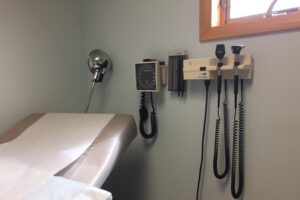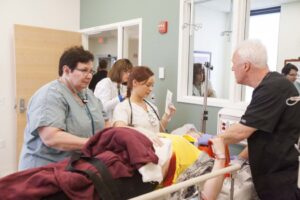Relapse doesn’t just happen. It is usually the end-result of a deteriorating program of Recovery, ultimately leading to a return to alcohol and/or drug abuse. It usually occurs after a superficial introduction to Recovery although it may happen after many years of Recovery and abstinence.
A series of negative events, emotions or setbacks occurring at a time when one’s program is weak or non-existent can trigger a case of the “fuck its”: the last angry thought many addicts/alcoholics report experiencing just before actually relapsing.
Alternatively, a relapse may occur after an unexpected, seemingly fortunate event such as the sudden acquisition of a large sum of money. If one’s program is not solid, this too, ironically, can lead to relapse.
Relapse prevention minimizes the chances of relapse. It is the lifelong commitment to a program, one day at a time. I was just over ten years clean and sober when I moved to Windsor from Toronto in 2001. At that time, I did not reconnect with the 12-Step fellowship in Windsor and I relapsed badly after about a year following my move to Windsor. Why did I choose at the time not to reconnect with the program? Was it the fear of being singled out in a smaller community? Maybe I thought I was cured… Whatever the reason, it would take me many more years (from 2002 to 2009) before I achieved any degree of continuous abstinence and Recovery.
The following are relapse prevention recommendations/suggestions I have gleaned from the experience of dozens of recovering addicts and alcoholics in the program:
- Cultivate a healthy fear of the disease; it does not care how many years of abstinence you have; it is looking for a weakness in your program and wants you to relapse;
- Have a daily structure and routine: divide the day into three parts – morning, afternoon and evening. At least one part of the day should be Recovery-oriented (reading Recovery literature, or going to the gym or attending a 12-step meeting or spending time with others in Recovery or calling your sponsor);
- Enhance /augment/embellish your Recovery activities in bad times AND in unexpectedly GOOD times (which can be just as dangerous to Recovery);
- Thoughts of drinking/using are just thoughts – they do not constitute a relapse. “Play the tape to the end” in your own mind. Visualize the dire consequences of returning to drinking/drugs;
- Learn to love yourself;
- Remember and be aware of the acronym H.A.L.T. – avoid being Hungry, Angry, Lonely, Tired;
- Avoid the wrong “people, places, and things”;
- Be in tune with yourself and heed the warning signs: emotional, mental, behavioural, physical;
- Create and maintain for yourself a network of friends in the fellowship;
- Get a sponsor and work the Steps;
- Identify any negative thoughts and feelings by keeping a diary;
- Share these negative thoughts and feelings with your friends and with your sponsor: a problem shared is a problem halved;
- Create a life for yourself outside of the workplace. There is much more to life than one’s job.
There IS a future with abstinence and Recovery; without these however, the consequences are “jails, institutions, and death.”




Leave a Reply